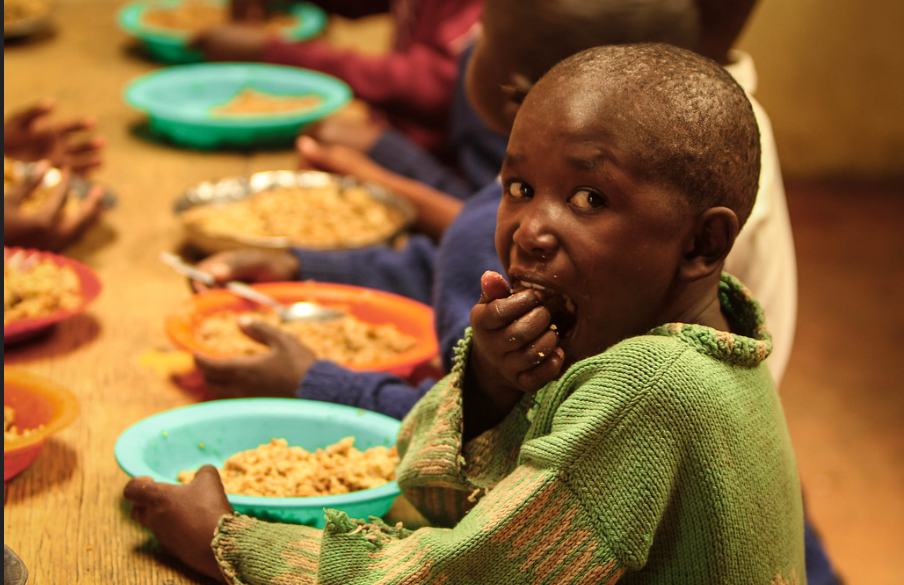The United Nations World Food Programme (WFP), in partnership with the Ministry of Education, Arts and Culture (MoEAC) and the Government of Brazil, recently visited Stampriet Combined School in Namibia’s Hardap region to evaluate the impact of the Home-Grown School Feeding Programme (HGSFP) and the School-Based Integrated Food Systems Project launched in 2021.
The Stampriet project, supported by Namibia and Brazil, has achieved remarkable results. The school now produces about 5,000 chicken eggs per month and a variety of nutritious vegetables. Revenue from the sale of these products fully funds the salaries of two gardeners. Students participate in the project by spending time in the vegetable gardens and hen houses, gaining hands-on experience in agriculture, business, and economics.
During the visit, Hon. Faustina Caley, Deputy Minister of MoEAC, praised the initiative and expressed a desire to expand it to more schools nationwide. “I want to see this successful project scaled up so other schools can benefit similarly,” she stated. Hon. Caley emphasized that this school feeding model not only supports education but also generates income for schools and contributes to community development through enhanced food accessibility and capacity building.
Local supermarkets and hotels purchase fresh produce and eggs from the project. Additionally, surplus produce is donated to a community soup kitchen, ensuring that learners receive healthy meals while also benefiting the broader community.
H.E. Vivian Loss Sanmartin, Ambassador of Brazil to Namibia, expressed enthusiasm for the project’s achievements, noting, “The results are impressive and demonstrate what can be accomplished with the right technical support and clear goals.” Ambassador Sanmartin reaffirmed Brazil’s commitment to supporting food and nutrition security in Namibia.
Ericah Shafudah, WFP Deputy Country Director in Namibia, highlighted the project’s transformative impact: “Beyond providing nutritious meals, this initiative educates children about food systems, creates employment opportunities for parents, and offers horticultural training. Families also benefit from purchasing fresh vegetables.”
Ambassador Jeroboam Shaanika, Deputy Executive Director (Multilateral Affairs) at the Ministry of International Relations and Cooperation, thanked all collaborators and underscored the vital role of school meals in children’s development, emphasizing their long-term benefits.
The Home-Grown School Feeding Programme, active in seven regions, serves 11,000 children across 29 schools, significantly improving their education, health, and nutrition.











